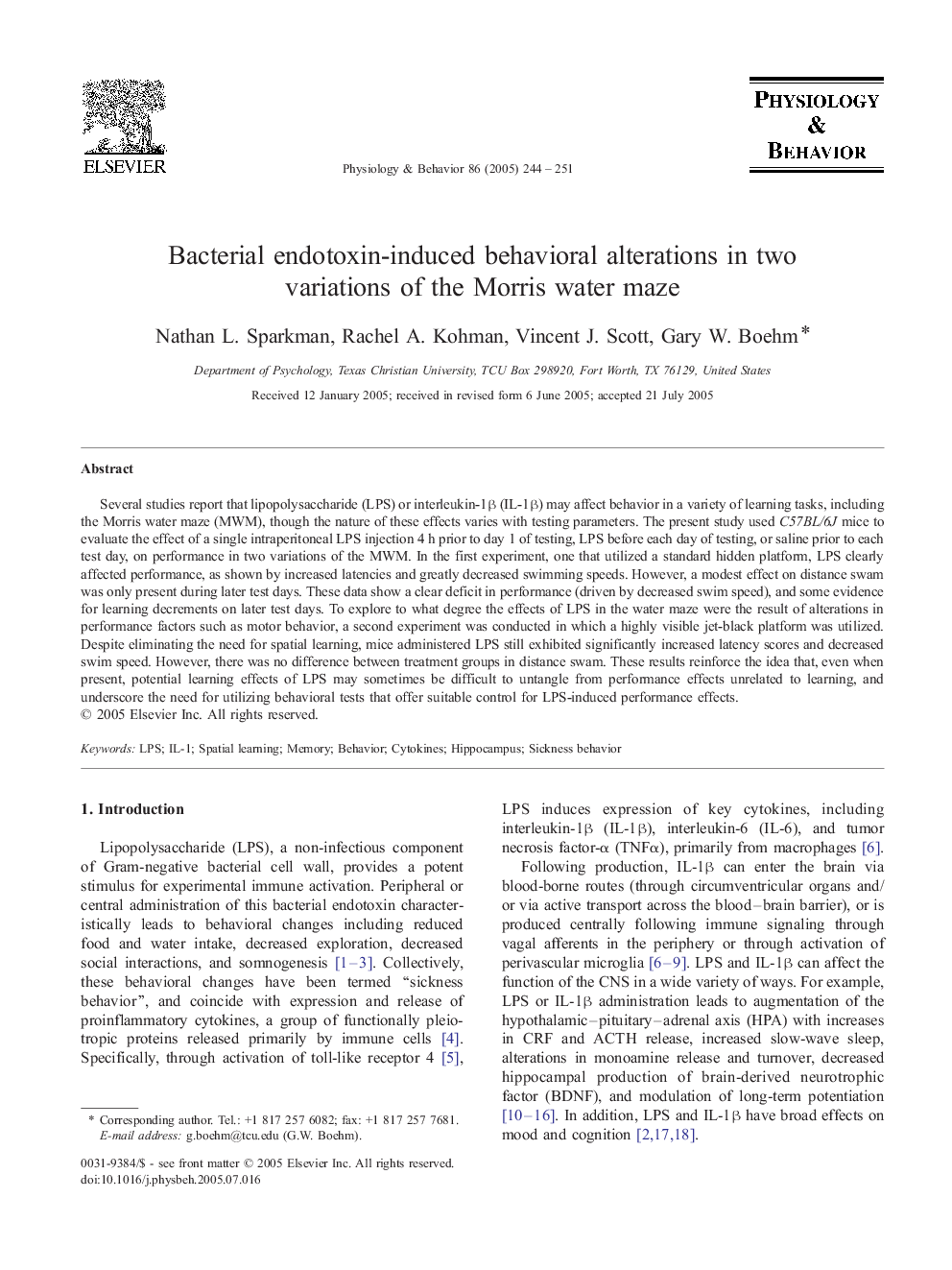| Article ID | Journal | Published Year | Pages | File Type |
|---|---|---|---|---|
| 9150063 | Physiology & Behavior | 2005 | 8 Pages |
Abstract
Several studies report that lipopolysaccharide (LPS) or interleukin-1β (IL-1β) may affect behavior in a variety of learning tasks, including the Morris water maze (MWM), though the nature of these effects varies with testing parameters. The present study used C57BL/6J mice to evaluate the effect of a single intraperitoneal LPS injection 4 h prior to day 1 of testing, LPS before each day of testing, or saline prior to each test day, on performance in two variations of the MWM. In the first experiment, one that utilized a standard hidden platform, LPS clearly affected performance, as shown by increased latencies and greatly decreased swimming speeds. However, a modest effect on distance swam was only present during later test days. These data show a clear deficit in performance (driven by decreased swim speed), and some evidence for learning decrements on later test days. To explore to what degree the effects of LPS in the water maze were the result of alterations in performance factors such as motor behavior, a second experiment was conducted in which a highly visible jet-black platform was utilized. Despite eliminating the need for spatial learning, mice administered LPS still exhibited significantly increased latency scores and decreased swim speed. However, there was no difference between treatment groups in distance swam. These results reinforce the idea that, even when present, potential learning effects of LPS may sometimes be difficult to untangle from performance effects unrelated to learning, and underscore the need for utilizing behavioral tests that offer suitable control for LPS-induced performance effects.
Related Topics
Life Sciences
Biochemistry, Genetics and Molecular Biology
Physiology
Authors
Nathan L. Sparkman, Rachel A. Kohman, Vincent J. Scott, Gary W. Boehm,
